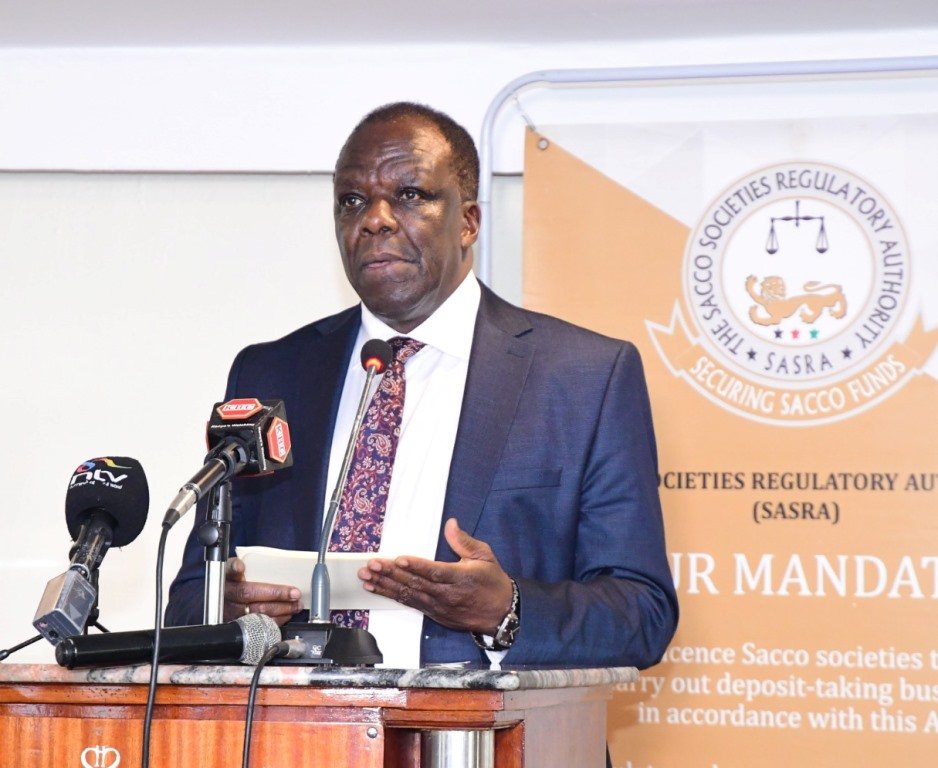The government has announced a temporary freeze on the registration of new Savings and Credit Cooperative Organizations (SACCOs) for at least the next three months.
The decision, which took immediate effect, was confirmed by the Ministry of Cooperatives and Micro, Small, and Medium Enterprises (MSMEs), signalling a period of internal restructuring and policy realignment.
This move follows the discovery of fraudulent activities at the Kenya Union of Savings and Credit Cooperatives (KUSCCO), where deposits amounting to billions of shillings have been lost.
This was announced by Wycliffe Oparanya, Cabinet Secretary for Cooperatives and MSMEs, during the inauguration of the Committee of Experts to review the Sacco Societies Act and the inauguration of the new KUSCCO Board at NSSF Building in Nairobi.
Growing concerns over the financial health and governance of some SACCOs have continued to rise, with reports of mismanagement, liquidity crises, and fraudulent activities undermining member confidence.
As a result, authorities seek to address systemic challenges, enhance oversight, and ensure that existing SACCOs operate within strengthened regulatory frameworks before new ones are introduced into the market.
By pausing new registrations, the government aims to conduct a thorough review of compliance levels, weed out non-performing entities, and implement stricter vetting processes for future applicants.
In taking this decision, the ministry aims to safeguard the interests of millions of Kenyans who rely on SACCOs for savings, credit, and investment opportunities.
Simultaneously, the newly inaugurated board of KUSCCO has also begun its work, tasked with steering the sector towards greater stability and efficiency. It will also introduce measures to enhance transparency, improve risk management, and promote best practices among SACCOs.
Additionally, the government is focusing on revising the SACCO Societies Act to align the sector with modern financial standards and protect depositors from potential losses.
While the suspension may delay the launch of new cooperatives, the short-term disruption is expected to yield long-term benefits by fostering a more robust and trustworthy SACCO ecosystem.
Existing societies are encouraged to use this period to strengthen their operations, ensuring they meet regulatory requirements ahead of any new compliance measures.
For millions of Kenyans—especially those in underserved areas where SACCOs serve as critical financial lifelines—the hope is that these reforms will restore confidence, encourage savings, and ultimately drive economic empowerment at the grassroots level.


